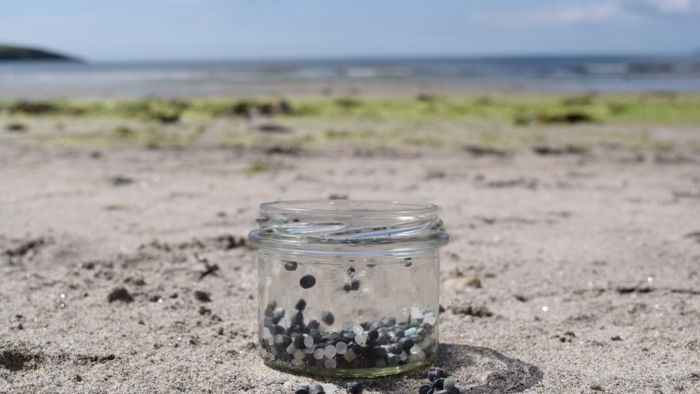by Dr. Robert Sluka, Lead Scientist A Rocha USA’s Marine Conservation Program & Florida Project Director
Nurdles – a fun word to say. These are plastic pellets and cleaning them up, though, is no fun. Imagine opening a bag of popcorn in your kitchen and it falls on the ground, spilling everywhere. You will be finding kernels for the next years. Nurdles are similar in that they are about the size of a popcorn kernel and are spilling out into the world. They are made from hydrocarbons, so a climate change issue, and are transported by land and sea to factories where they are melted and made into most plastic products. So how did they end up on Canaveral National Seashore and how can you join in where you live?
A Rocha’s marine conservation globally has developed projects to study nurdles using methods that non-scientists can join in with. The method is simple, search for a set amount of time on a coast, river or lake and upload your results to the Great Nurdler – a global partner documenting citizen science nurdle hunts globally. Visitors, students at Coastal Community School, Titusville High School, Eastern Florida State University, churches, and families have all contributed to our study of nurdles on Florida’s Space Coast, which includes the amazingly beautiful Canaveral National Seashore here near the Kennedy Space Center. I gave a talk on our research at the International Marine Conservation Congress and put together a short, non-academic video showing what the sites are like and also some of our results. Thank you to the many A Rocha supporters and friends who contributed to this study.
You too can search for nurdles near your home – well, if you live up on a mountain or in the desert, this is not something you will find that satisfying! Nurdles have been found in the Great Lakes, along all our coasts, and in the USA’s major river systems. A Rocha has put together a Microplastics Toolbox where you can learn all about microplastics, including how to have a nurdle hunt and contribute your data to our understanding of this plastic problem. This is an excellent activity for families and small groups. Getting outside now is more important than ever. It is good for our emotional, mental, physical, and spiritual health. Just enjoy being outside together – but if you want to add in some science, nurdle hunts may be for you. Let us know online what you find.
Dr. Robert Sluka is Lead Scientist of A Rocha USA’s Marine Conservation Program and A Rocha International’s Marine and Coastal Conservation Program. He studied Marine Biology at the University of Miami and is an associate of the Faraday Institute for Science and Religion. After living for extended periods in Australia, India, and Great Britain, he now lives with his family in Titusville, FL. You can learn more about Bob’s story in this interview and in this video; you can reach him at [email protected] or follow him on Twitter @BobSluka.









Add a Comment